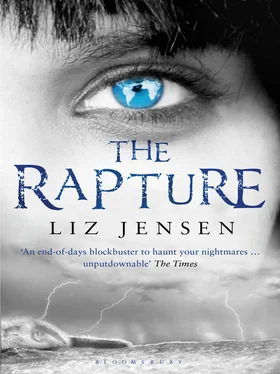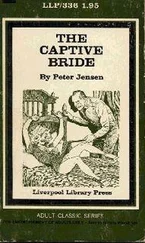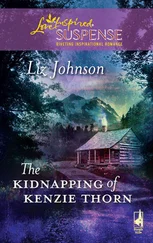I flick through to the next section, which is the attending police psychiatrist’s report. Dr Waxman’s write-up is verbose, but the story it tells is straightforward enough. In the immediate wake of the murder, Bethany’s coping mechanism was as brutal and efficient as a field amputation in time of war: she lost her memory. She did not deny committing the crime, but claimed to have no recollection of it, or what had provoked her to such drastic action. Nor would she speak to her father, when he returned, distraught, from his trip to Birmingham. Her refusal led to distressing scenes. ‘Elective amnesia as a form of denial, or refuge, is not uncommon among those who have experienced trauma,’ notes Waxman. ‘This can be just as applicable to the perpetrator of a crime as to its victim.’ On committing her to the care of Oxsmith, Waxman pronounced himself hopeful that she would make progress within the next few weeks and months, and moved on to his next case.
But Waxman’s optimism about the beneficial effects of Ox-smith Adolescent Secure Psychiatric Hospital was misplaced. Two years into her institutionalisation, Bethany Krall had made four attempts on her own life and seriously attacked another patient. Her memory had returned, but she refused to speak about the murder or what triggered it. She began to starve herself and, after being diagnosed with acute depression, was given a panoply of mood-altering drugs, none of which proved effective in improving her morale. Bethany showed no interest in co-operating in therapy sessions, and remained largely mute. When she spoke, it was to express the belief that her heart was shrinking, her blood was poisoned, and she was ‘rotting from the inside’. Increasingly experimental drug combinations were applied, some of which made her state of mind worse, and led to side-effects such as trembling, dribbling, lethargy and, in one instance, convulsions. She exhibited extreme disturbance, cutting herself frequently, and becoming dangerously underweight.
One day, in the wake of a severe thunderstorm during which she mutilated her throat with a plastic fork, Bethany insisted that she was dead, and that her body was slowly putrefying. To prove that as a corpse she was unable to digest food, she stopped eating altogether. At this point, Cotard’s syndrome — a nihilistic conviction that one’s body has expired — was aired as a diagnosis, and after some discussions, it was agreed that she should undergo electroconvulsive therapy as a last-ditch resort.
The results are described as ‘dramatic’. Bethany began to eat, talk and respond more positively to therapy. Although she experienced some of the usual after-effects of ECT such as short-term memory loss and disorientation in the immediate wake of each session, the psychiatrists judged the treatment to be an unmitigated success. Bethany herself said she felt ‘more alive’, and insisted she experienced the ECT interventions as positive — despite the fact that she was anaesthetised throughout and could have no recollection of them. But weirdness is relative in the territory occupied by the mentally deranged. Anything can manifest itself and, with the skewed anti-logic of anxiety dreams, it does: tins of mango slices containing encoded messages from the Office for National Statistics, a conviction that your skeleton will dissolve if you think about sex, a grouting phobia. A junior arsonist I dealt with once, who could cite the chemical compound of every flammable gas known to man, insisted on keeping his mouth open to avoid getting lockjaw. He’d sleep with a wedge of pillow clamped between his teeth as though his life depended on it. Life’s rich tapestry, Dad would have said, in his bridge-and-crossword days, before Cartoon Network and the drool-bib took over the show.
Since March, after an initial five weeks of weekly sessions, Bethany’s shock therapy has been administered on average once a month, as a maintenance dose, by one Dr Ehmet, whom I have not yet met, though I once caught sight of the back of his head and noted that he could do with a haircut. But effective though the ECT has been, Bethany’s refusal to discuss her parents and the catastrophic event that brought her here continues. What prompted her to attack and murder her mother with a screwdriver one April evening remains a mystery. Therapeutically, I am not sure how much this matters. Psychological principle has it that buried traumas must be exhumed and dealt with before a patient can move on. But I am less and less convinced by this reasoning. If there was a pill that could suppress horror, I would take it myself, and wipe out the last two years of my life. The brain is as uncharted and unfathomable as the sea, and as capricious. But it is also wise enough to do what’s required to keep a body going. Who says that for Bethany Krall, forensically analysing what she did to her mother, and why, will do any good? Sensing this on some level, might she be using the ECT as a means of obliterating a crucial section of autobiographical memory?
Aware of the time, I skim quickly through the rest, which includes a further note, added by Oxsmith’s principal psychiatrist, Dr Sheldon-Gray, at a later date. The patient’s father, Leonard Krall, has declined to see Bethany in Oxsmith. Therapeutically speaking, this may be to Bethany’s advantage, as his explanation for his wife’s murder is that Bethany was ‘possessed by evil’.
I too have a problem with words like evil. When my mother died, my father sent me to a Catholic girls’ boarding school, a place of unshakeable Bible certainties — certainties to which a man like Krall, and the millions like him who converted during the Faith Wave, can be no stranger. Living by such certainties, he knows that the only explanation for Bethany’s violence is nothing earthly, such as pain or revenge or anger or simply a chemical imbalance in the brain, but a ‘visit’ from a notion. True faith, the kind of faith that is described as ‘burning’, carries its own aura. A sort of righteous chutzpah. You see them on their mass marches, their faces illuminated from deep within. That conviction, that passion, that energy: you can envy it.
When I arrive in the studio for my meeting with Bethany a thickset male nurse is already there, talking on his mobile, deep in an elaborate technical discussion about shift schedules. I’ve heard that Rafik is tough and alert — but his with-you-in-a-minute gesture doesn’t inspire confidence. Despite having spent much of the last few months devising and practising new physical defence strategies involving the grabbing and twisting of vulnerable body parts and the strategic hurling of objects, I feel permanently vulnerable, a moving target. The notes have just told me that in December last year, Bethany Krall bit the ear off a boy who sexually attacked her. She chewed it up so badly it couldn’t be reattached.
Marvellous. Bring her on.
Then suddenly — far too suddenly — a huge escorting nurse with tattooed arms has done just that. The door has opened and a dark streak of a girl has walked right up to me. And already she’s too close. You never get used to everyone being taller than you, to seeing them from the wrong angle. She should step back a bit. But she doesn’t. Rafik exchanges grunts with his mountainous colleague, who nods at me as if to say package delivered, and leaves. I could shift again, but I don’t want to risk it. She’d know what it meant.
Bethany Krall is small, bird-boned and underdeveloped for a sixteen-year-old. On her head, a tangled mass of dark hair like a child’s angry scribble. Self-harm being an ever-popular hobby among the female patients at Oxsmith, her bare arms reveal the usual welter of cigarette burns and crosswise slashes, some old, some more recent.
‘Hallelujah. The new psychiatrist.’ Her voice is babyish for her age but oddly hoarse, as though someone has scrubbed the inside of her throat with a chemical abrasive.
Читать дальше












